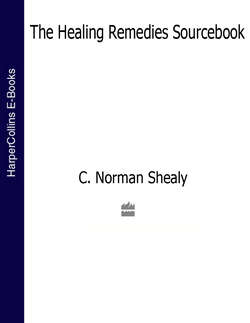Читать книгу The Healing Remedies Sourcebook: Over 1,000 Natural Remedies to Prevent and Cure Common Ailments - C. Shealy Norman - Страница 29
ОглавлениеCORIANDRUM SATIVUM
CORIANDER Dhanyaka, Dhania
Coriander is a bitter, pungent herb, with a sweet, pleasant taste. Its energy is cooling and moisturizing. It has strong stimulant and alterative properties. Coriander acts as a diuretic and diaphoretic. Coriander stimulates the plasma, blood, and muscles. It is thought to be an aphrodisiac because of its phyto-estrogen content.
PROPERTIES
Coriander is a bitter, pungent herb, with a sweet, pleasant taste. Its energy is cooling and moisturizing. It has strong stimulant and alterative properties.
Part of Plant Used The seeds and leaves.
Conditions Treated Coriander alleviates urinary infections, cystitis, rashes, hives, burns, digestive disorders, such as gas pains, vomiting, and indigestion. Coriander is beneficial for respiratory problems—it eases allergies and hay fever.
Form Taken Used as a spice, tea or infusion, a compress, douche, shampoo, and massage oil.
Used with Other Herbs? Used with lemon, cajeput, lavender, cardamom, clove, nutmeg, jasmine, sandalwood, cypress.
HOW TO USE
Coriander reduces all three doshas.
Its antifungal, antibacterial properties were noted by the Romans, who used coriander to preserve meats.
Like cinnamon, coriander powder can be sprinkled on cuts and scrapes to prevent infection.
The infusion makes an excellent digestive aid.
CAUTION
In high doses, coriander may cause kidney irritation.
During pregnancy, use only under recommendation from your physician.
